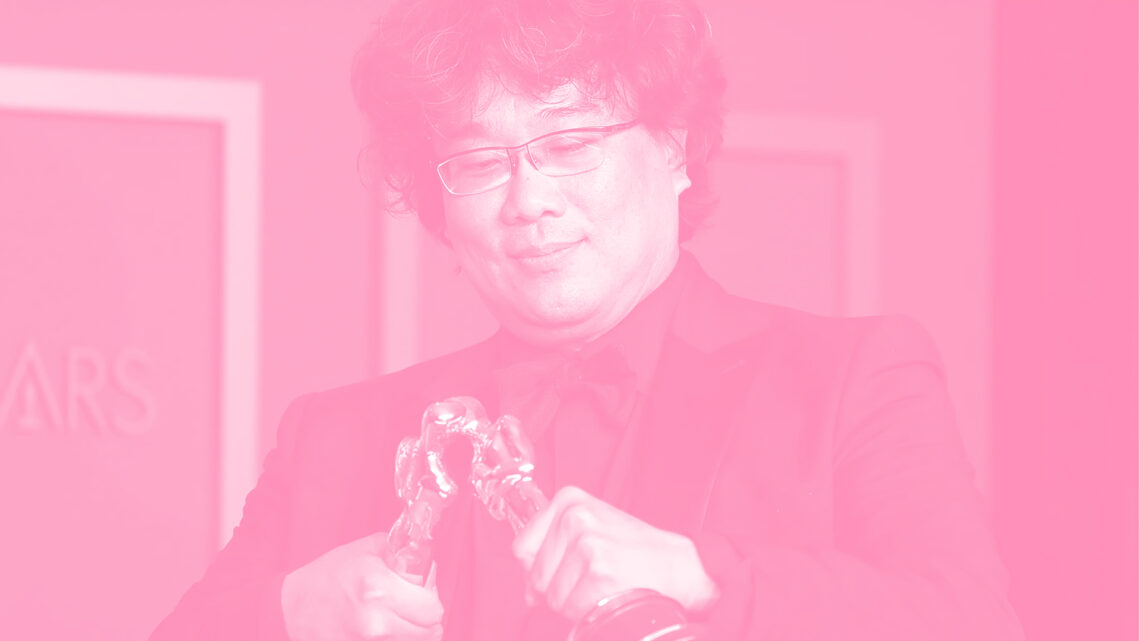I don’t know about you, but I’m really looking forward to April the 26th, the date when the 93rd award ceremony of the Academy of Motion Pictures and Sciences will be held. Although I’m probably looking forward to it for another reason than you might think.
You could say I’ve got the Oscar Fever. Which means a lot to those out there already initiated in maybe the most important group of cinephiles out there: the junior movie buffs.
Since 2013 Tim Heidecker and Gregg Turkington, comedians that take on the role of very knowledgeable film buffs, knowledgeable is in quotation marks here btw, have streamed their own Oscar Special show live and in tandem with the Oscars. These shows, all part of the ever-growing On Cinema At The Cinema Cinematic Universe, are comedy gold: two self-proclaimed critics attempt a Roger Ebert and Gene Siskel style television show about all things movies and cinema but fail horribly and rather clash with each other over the most basic of things: whether Star Trek IV: The Voyage Home is set in San Francisco or not; whether Mission Impossible or James Bond is the best spy movie franchise out there; or whether making music and hanging out with your buddies is more important than engaging with film and collecting them on VHS in a frantically labelled but also kinda chaotic archival system.
In essence, the On Cinema At The Cinema series, all free to watch on YouTube, reveals the absurd nature of extensively engaging with the film industry at large, which makes it very enjoyable for me, a film critic who also sometimes thinks in movies first, life second. In a way It’s also a perfect mirror for institutions like the Academy that behind their professional image seem to be a deeply ineffectual and low-key amateuristic platform to truly reflect what film culture is about. The Oscars are too white, too male centric, too much catered towards the industry itself and too unfair in giving the statuettes to the people that seem more deserving of it, and yet we hold the ceremony and its prizes in regard as one of the most important indications of the quality of a specific movie, maker, writer, performer etc. I think the moment where Warren Beauty accidentally gave the Oscar for Best Film to La La Land instead of Moonlight came across as a mask-off moment for many, giving an insight into how broken this archaic institution seems to be.
But of course, something as prestigious as the Oscars has to constantly reinvent itself to remain just progressive and appealing enough to remain a firm grip on the cultural landscape. A very cynical read of the sweeping win of Bong Joong Ho’s Parasite could be that the film had to win in order for the Oscars to hang on to some of their relevance.
In this pandemic year in which the biggest films have mostly been indefinitely postponed or dumped onto our VOD platforms, the Oscars were faced with another challenge: to remain the biggest and the best, even though the eligible films don’t necessarily fit the mold of what an Oscar-winning-movie might look like in the 21st century. There’s much to reflect on here and there’s some interesting titles out there that are vying for the most important awards this year, but if you’ve come for this kind of detailed Award speculation you’ve gone to the wrong place.
In this episode we’d rather take the Oscars as a cue to talk about the inherent absurdities of the film industry that reveal themselves when you take a peek behind the curtain. We’ll be doing that with the help of a daft little film that got released in 2013 and didn’t really get hold of the cultural imagination around that time but has proven to be almost prophetic in its highly critical stance towards the film industry. I’m talking about The Congress, a hybrid feature animation film by Ari Follman, who rose to critical esteem with his animation/documentary hybrid Waltz With Bashir about the 1982 Lebanon war.
On the back of the success of that film Folman basically decided to bury his career by making a batshit insane adaptation of a Stanislaw Lem novel called The Futurological Congress about a riot in a Hilton congress hotel that gets suppressed by psychedelic drugs spread through the drinking water. Folman combines that psychedelic and satirical narrative with a scathing critique of the film industry in which an actress called Robin Wright, obviously played by Robin Wright, is enticed to digitize her body, voice, movements and gestures so she’ll never have to act another role in her life again. Her CGI counterpart will do the acting for her, and in exchange she’ll check the royalties of her pictures for the rest of her life.
When in the second half of the film the by now permanently out of work Robin Wright checks into a hotel where Stanislaw Lem’s congress takes place, the film takes a radical left turn and becomes an aesthetic and reality bending animation film in which all of culture at large seems to co-exist within the same realm. It’s a lot to handle and the film doesn’t really give you a map of how to navigate its chaotic narrative. Which is exactly why we’re taking it here as a starting point to talk about the film industry, ownership of images, culture as competition and our own role in this complex spiders’ web of culture and criticism. And all of that can easily bring us back to the Oscars and the upcoming ceremony.

